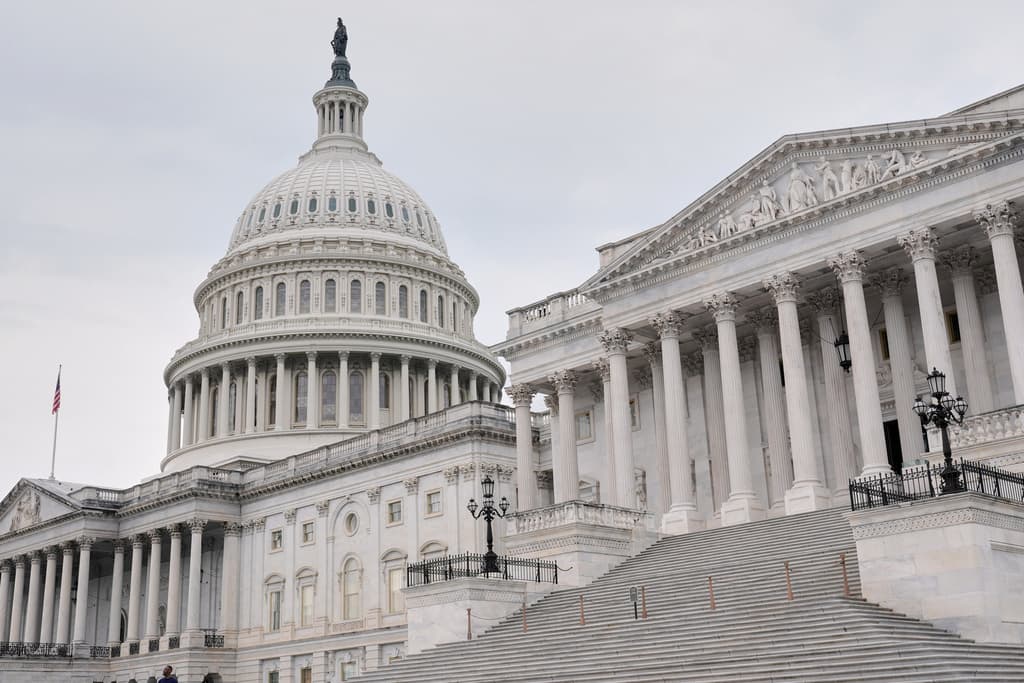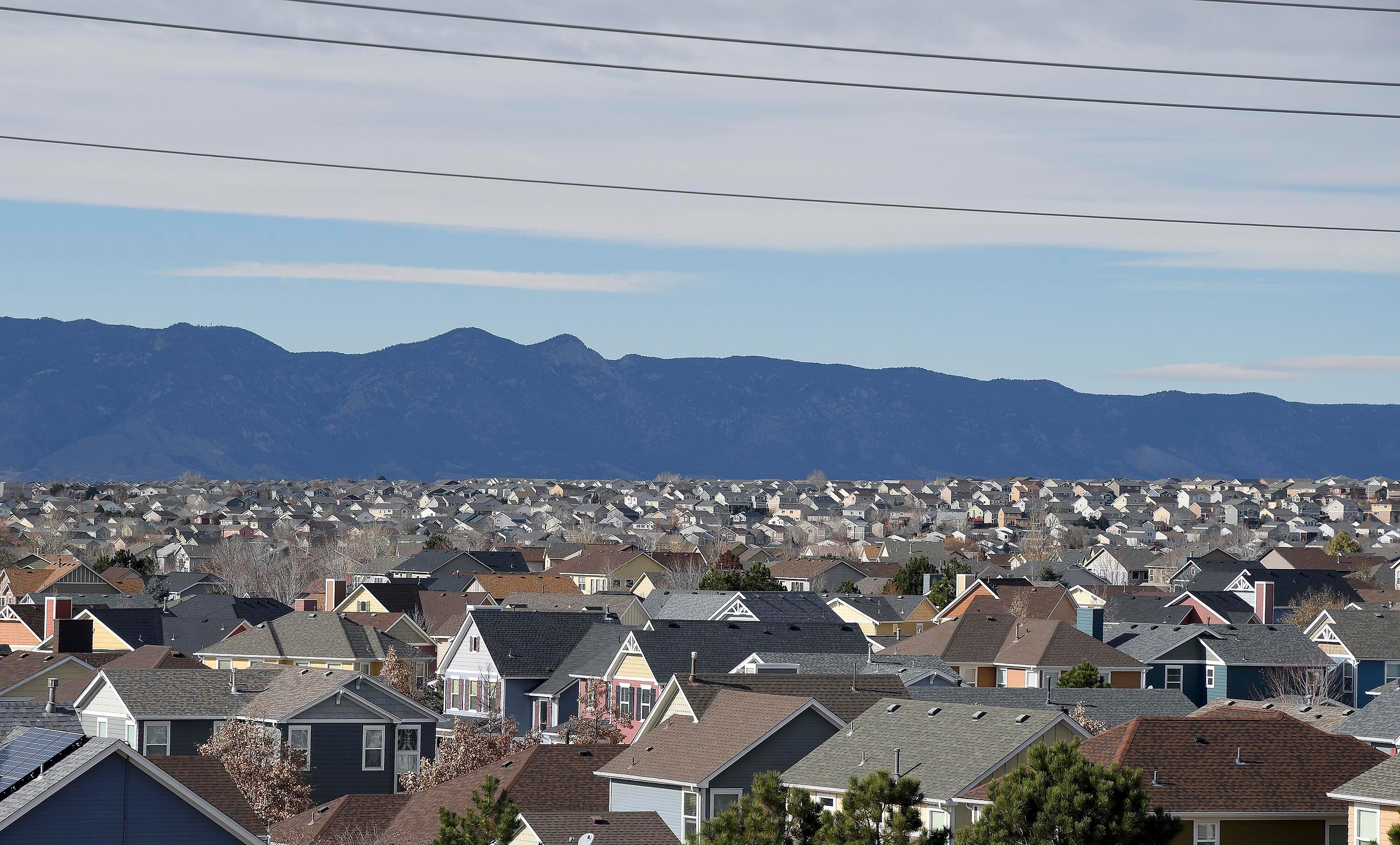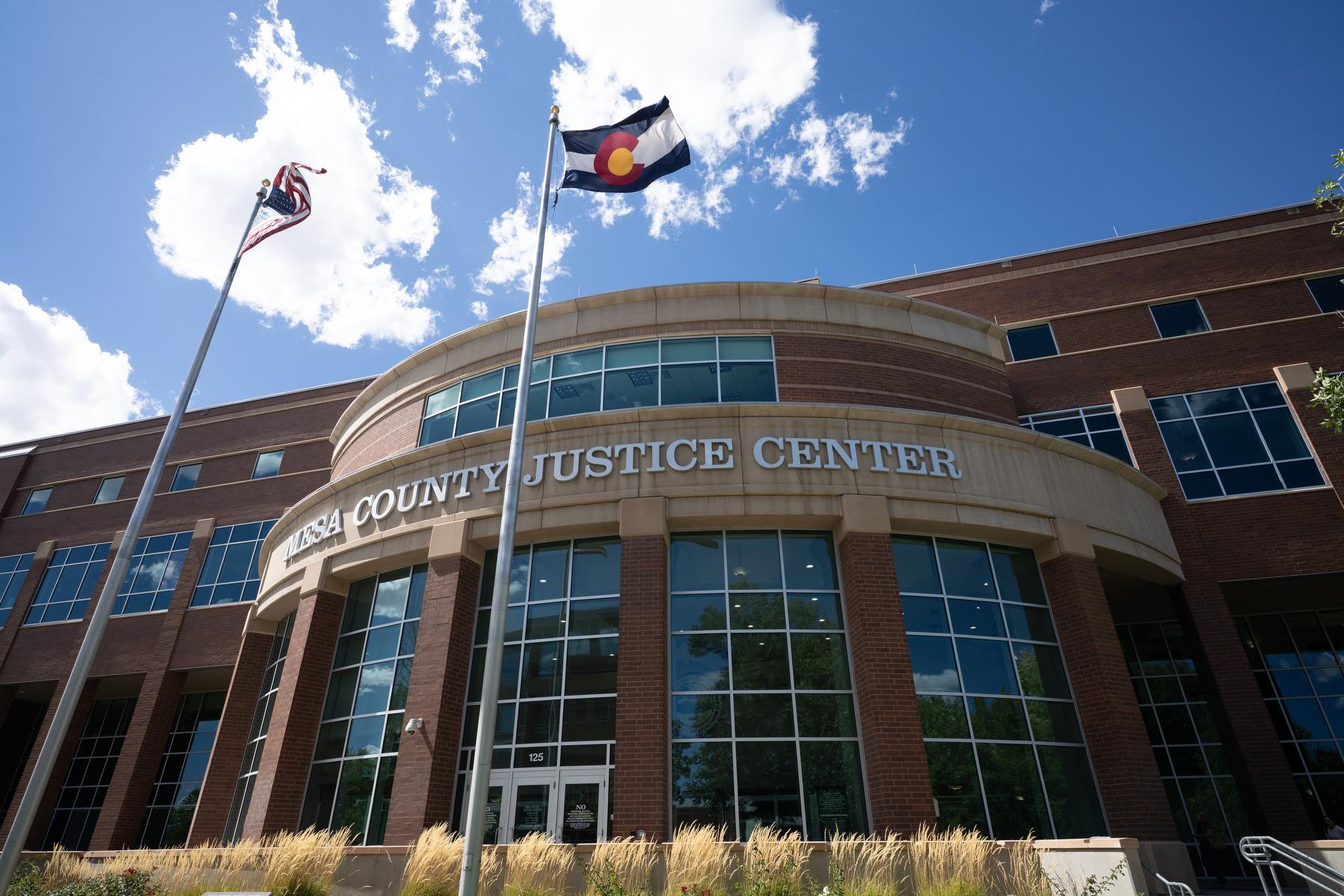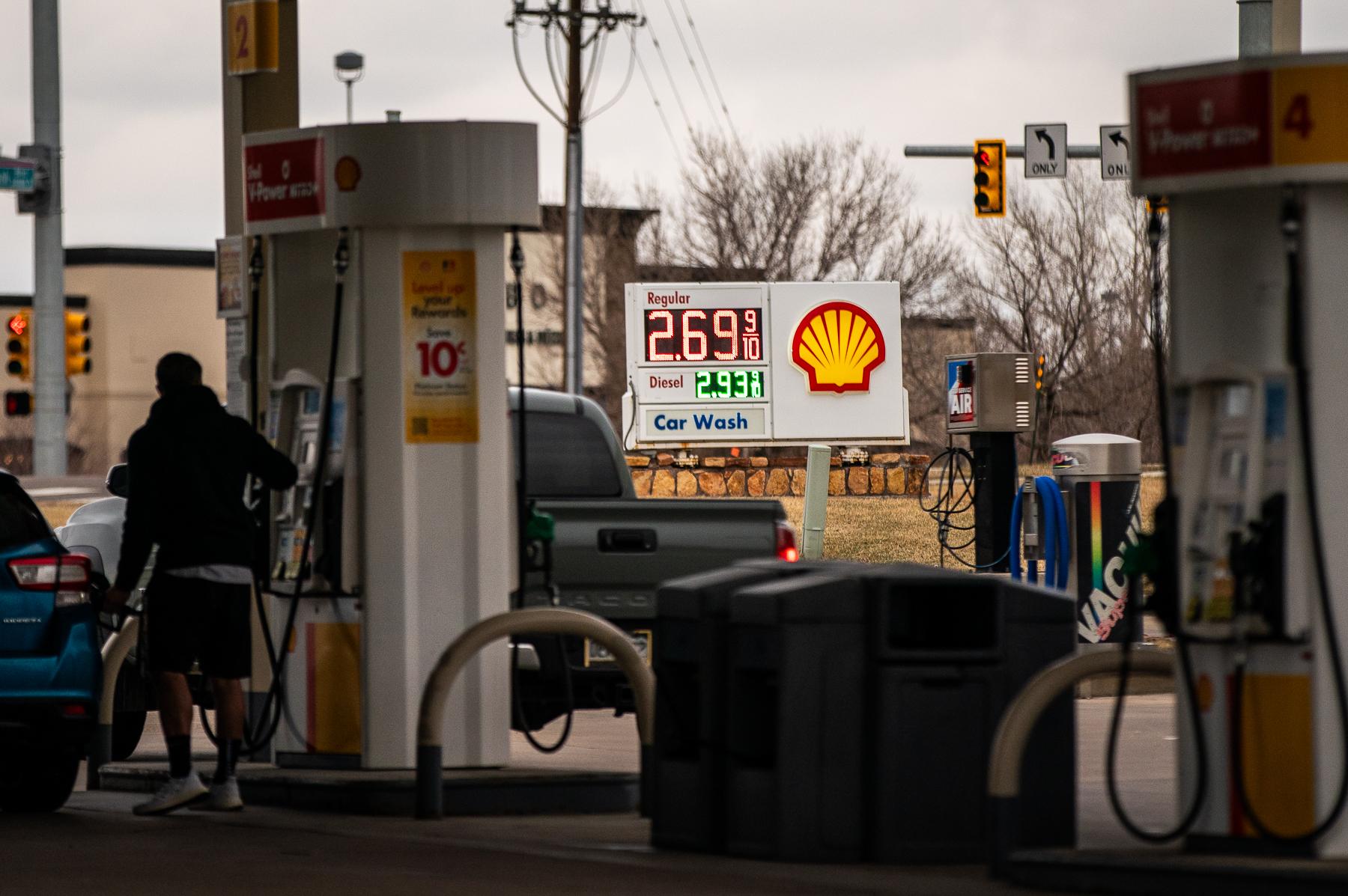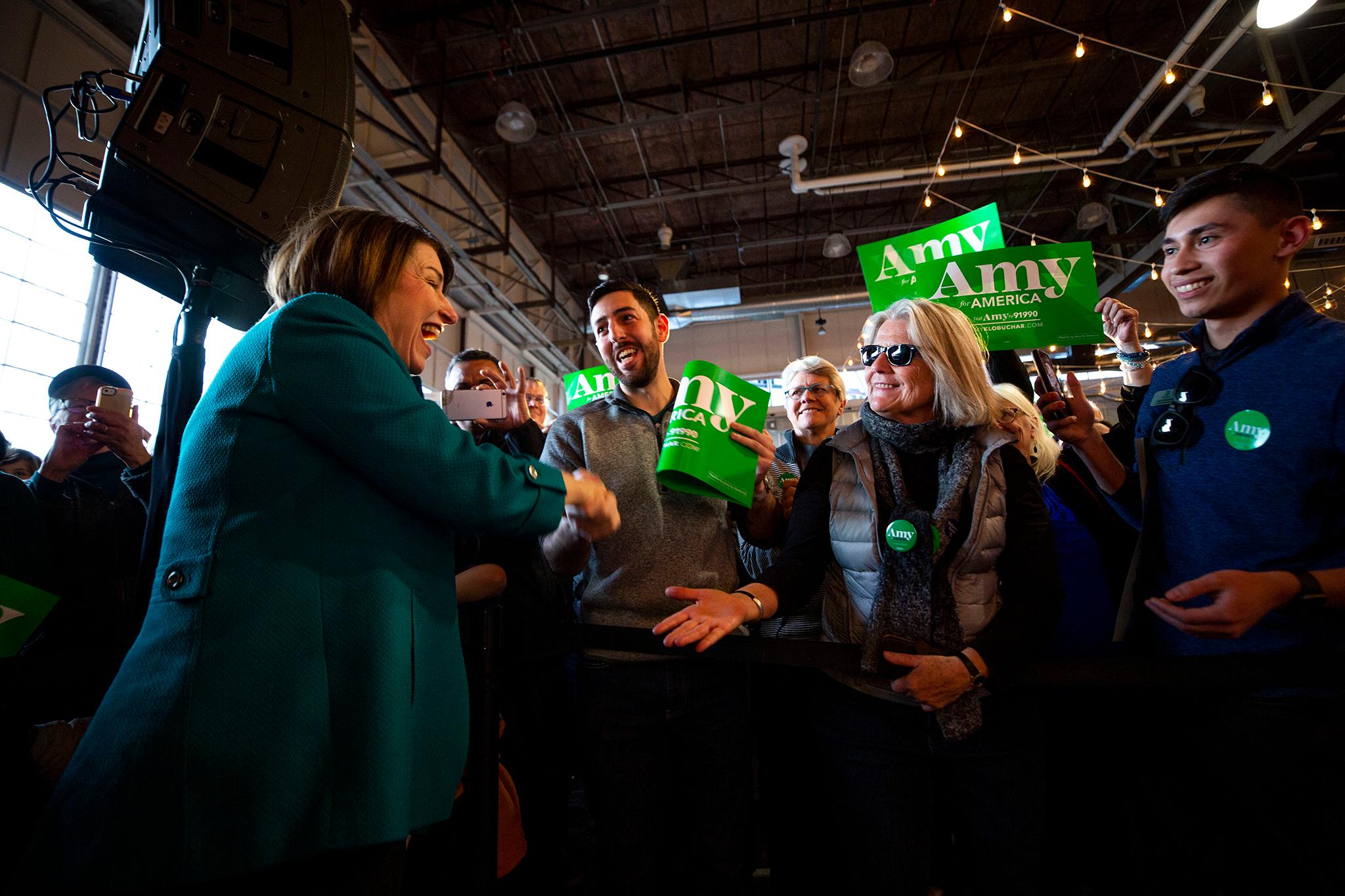
With new urgency, Democrats have intensified their political barbs against their party's presidential nominee front-runner, Bernie Sanders. At the same time, the Vermont senator is seeking a strong performance — perhaps even a knockout blow — in South Carolina's primary this weekend.
Beyond that are Colorado and the other Super Tuesday states.
So is it time for centrists to consolidate behind a single candidate? Will someone need to take one for the team?
“Well, people haven't voted yet, and in fact, only 3 percent of the people of this country have voted,” Minnesota Sen. Amy Klobuchar told CPR’s Colorado Matters. “And when you look at it, I'm actually third in vote total and Sen. [Elizabeth] Warren and I are pretty much tied for [the] number of delegates.”
Warren has eight delegates to Klobuchar’s seven. Sanders leads the pack with 45 before the South Carolina Primary.
If there is growing concern that a self-described democratic socialist is tightening his grip on the nomination, the other Democrats in the field have shown they still believe they have a chance in the primary. Nobody has budged yet. When Colorado Matters solicited readers and listeners for questions to ask Klobuchar, several Coloradans asked some version of ‘Why split the moderate vote and make it easier for Sanders?’
“I actually think my argument, being the only one left on the debate stage that has won in rural areas and suburban areas, led a ticket and brought people with me in terms of winning big, is exactly what we need right now,” she said.
A new poll has the midwesterner at about 6 percent in Colorado. Total ad spending by all candidates in the state so far is $8.9 million. Former New York Mayor Mike Bloomberg is behind the lion’s share. Sanders is a distant second and Warren has made a modest television ad buy.
While her name hasn’t shown up in the big TV ad buys locally, Klobuchar insists that investments have been made.
“Because of what happened with some of the recent debates, the New Hampshire debate, we've gotten in $13, $14 million, in literally just a few weeks after that, which has enabled us to build our team in Colorado, and we hired one of Sen. [Michael] Bennett's former political directors and have a really good team that we put on the ground in Colorado.”
She was just in Aurora and she also said her daughter has been in the state with visits to Pueblo, Colorado Springs and Denver.
For a majority of Democratic voters, going back to the days before Donald Trump isn’t good enough. That’s where Klobuchar seems to sense where her appeal lies as she notes “a lot of people haven't shared in the prosperity that he gloats about all the time.”
“I think the West has a lot to do with a victory, and that is, of course, Colorado, but also Nevada. And I think I would add Arizona to that as well.”
She notes that her party bounced back in the 2018 midterms after the loss to Trump in key states like Pennsylvania, Michigan and Wisconsin.
“I called it the Blue Wall and I think the Blue Wall extends to the West,” she said. “What we need to do is build a Blue Wall of Democratic and Independent and moderate Republican votes around these states, and make Donald Trump pay for it.”
CPR’s Jim Hill and The Associated Press contributed to this report.
Full Interview Transcript
Ryan Warner: Senator, thank you for being with us.
Sen. Amy Klobuchar: Sure.
RW: A new poll has you at about 6 percent in Colorado. And when I solicited questions for you on Twitter, I heard from several moderate Democrats scared of a Bernie Sanders nomination, and they ask some version of this question, why split the moderate vote and make it easier for Senator Sanders to win? What do you say?
AK: Well, people haven't voted yet, and in fact, only 3 percent of the people of this country have voted. And when you look at it, I'm actually third in vote total and Senator Warren and I are pretty much tied for number of delegates. And I actually think my argument, being the only one left on the debate stage that has won in rural areas and suburban areas, led a ticket and brought people with me in terms of winning big, is exactly what we need right now. I'm also the person up on the stage who's still in the Senate that's passed over 100 bills, as the lead Democrat, working of course with my friend Michael Bennett and many others in your state. And I think that it's important to have someone that doesn't just win but also get things done when she gets there, and that's why I'm running.
RW: Your campaign is not spending money on ads in Colorado. Why not?
AK: We actually are spending on digital ads throughout Colorado, and we actually have been running ads all across the country. And because of what happened with some of the recent debates, the New Hampshire debate, we've gotten in $13, $14 million in literally just a few weeks after that, which has enabled us to build our team in Colorado, and we hired one of Senator Bennett's former political directors and have a really good team that we put on the ground in Colorado. I was just in Aurora, and we had a fantastic event there. My daughter's been there the last few days because it's such a high priority for us, and she's been in Pueblo and Colorado Springs as well as Denver. So, we're pretty excited about the operation we put together there. Also campaigned there a lot for President Obama, as well as Senator Salazar when he was in the Senate and Sen. Udall. And we've worked together with your Colorado delegation on really important issues, like a renewable electricity standard as well as gun safety legislation.
RW: Climate change has come up again and again among voters we've spoken with across the state, and I thought we might take a moment to explore an aspect of your climate plan, specifically what you call a landmark carbon pricing system that does not have a regressive impact on Americans. How do you put a price on something that's currently at the heart of the economy and not make it regressive?
AK: Good question and I don't think we're going to be able to pass this unless we make sure that the money goes right back to the people that need it. And this is how I would do it. You put a price on carbon, and you can do it in different ways. You can do it with a renewable electricity standard like you've just done in your state. You can do it with cap and trade, putting a cap on them using a market mechanism, and you can also do it by putting a carbon tax or fee. Okay. So, you can do a combination of those things. You're going to bring in trillions of dollars and it's going to create incentives of course for new technology. The key is to make sure that money goes right back to the people that are going to see changes in their heating or cooling bill, as well as areas that are going to see transition in jobs.
AK: Some areas will see new jobs; some areas will see transition. And I feel this, not just from the facts, it's from the heart. My grandpa was an iron ore miner. They closed those mines, opened them. There used to be a big billboard out of Duluth in the early '70s that I still remember, that the last one to leave, turn off the lights. We can't let that happen or we're not going to be able to pass this and it's not going to be good policy. So, I'm devoted to making this work.
RW: Indeed, your most recent visit to Colorado brought you to Aurora, a community that's no stranger to gun violence. Is there gun control legislation that as president, you think you could get through a divided Congress?
AK: There is, and in fact, three of the bills have made it through the House, some with some Republican support. Universal background checks. The bill that I've authored, I'm closing the boyfriend loophole so that convicted domestic abusers can't go out there and get guns, and then finally closing the Charleston loophole, which gives police more time to vet people that apply for guns. I would also of course favor other things like assault weapon ban and magazine limit, but these things can get done. All we need is a president that wants to do them and is not afraid of the NRA and won't fold. Why do I think that? Because the majority of Trump voters now want universal background checks, according to a Fox poll last summer. The majority of hunters. Our two states, Minnesota and Colorado, are proud hunting states, and yet the majority of hunters, now there's been a sea change and one is the universal background checks. There's absolutely no reason that we can't get this done, except the president and Mitch McConnell are afraid of the NRA. That's it, plain and simple. And a change in the White House will mean everything for federal gun safety legislation.
RW: So, you think having a Democrat in the White House might usher in gun control legislation, and yet that wasn't true under President Obama, was it?
AK: Well, as I argued, there's been a big sea change since Parkland. I mean the Moms Demand Action, the work of Colorado after Aurora and the school shooting, you name it, they basically paved the way to what we saw after Parkland, where those kids stood up in Florida and a lot of kids across the country did what already had happened in Colorado. They started talking to their parents and their grandparents. And what happened there was suddenly there was a sea change in views, kind of what we saw in this country with gay marriage. In my mind, a lot of it with guns has started with the younger generation and what they have asked, the questions, and then they marched and then they voted in record numbers for a midterm. And it's part of the reason people like Jason Crow got elected, just because we saw a sea change in our country.
RW: The so-called Blue Wall through the Midwest fell in 2016. Do you think that the path to victory for Democrats is now through the West?
AK: I think the West has a lot to do with a victory, and that is, of course, Colorado, but also Nevada. And I think I would add Arizona to that as well. And to me, when I've gone on tours of these States like Pennsylvania and Michigan and Wisconsin, that we should've won in 2016 but for a variety of reasons did not. We came roaring back in 2018. And the West was an anchor now. And so, to me, I called it the Blue Wall and I think the Blue Wall extends to the West. What we need to do is build a Blue Wall of democratic and independent and moderate Republican votes around these dates, and make Donald Trump pay for it. Because there's a lot of people that haven't shared in the prosperity that he gloats about all the time. And that's because he hasn't done anything about costs, prescription drug costs, healthcare premiums really hasn't built the infrastructure we need, caused a lot of trouble with this trade war, you name it.
RW: Will you back the democratic nominee, whoever that is, you or someone else?
AK: Of course, I will.
RW: Senator, thank you for being with us.
AK: Well thank you very much. It was great to be on.

